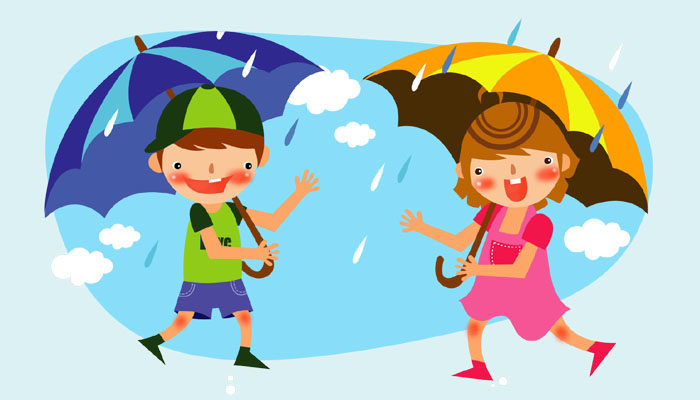
by Maria Rikka M. Ocena
Monsoon season is my favorite season! The cool breeze gives relief after the scorching summer heat. The smell of earth and the sound of droplets of rain invite me to cuddle my pillow, relax, and enjoy the “bedtime” weather. Unfortunately, this is also the season when my skin allergy starts to attack, and cough and flu are my worst enemies.
Mothers can attest that along with the cool and gusty days come rainy season problems not only for the household, but also for the entire community. The Philippines is susceptible to all kinds of woes brought on by our frequent typhoons— mold, mildew, sneezing, colds, dengue fever, flooding, just to name a few, but we know that the list is endless.
I visited a flood-prone neighborhood in Cainta, Rizal to ask how people get through the monsoon season. I was able to speak with the health worker at the community health office and gather helpful tips from her also.
Here’s a list of what they told me.
Before the Rainy Season
- Make a careful house inspection. Repair water leaks, broken downspouts, cracked walls and electrical fittings. Remove leaves that are in your roof gutter. Clogged gutters will hold water that later on becomes breeding grounds for dengue-infected mosquitoes.
- Be sure that medicines are readily available. It is advisable to keep a medicine box that includes paracetamol, mefenamic acid, loperamide, and loads of vitamin C. Keep ample supplies of any prescription medicines that family members are taking.
- Local government and health care provide fumigation services in different municipalities. Coordinate with your village’s association office for the schedule. Fumigation eliminates disease-carrying mosquitoes.
- Avoid the flu by getting a shot for influenza. Children who are six months to 23 months old and the elderly are at risk of flu during the rainy days; it is highly recommended that they take this vaccination.
During the Rainy Season
- Water-borne diseases are on the rise during the rainy season. It is important to ensure that your family is consuming only boiled or filter purified water. Boiling and filtering water will eradicate disease-causing bacteria.
- Raw and lightly cooked foods are high risk for salmonella contamination that causes food poisoning. Symptoms include diarrhea, vomiting and abdominal cramps. To avoid infection, meticulously prepare meals for the family. Keep food properly refrigerated and practice frequent hand washing when cooking.
- Eat healthy food during the season. Load up on citrus fruits and vegetables. Try to prepare meals with garlic, pepper, and ginger, as these are known to aid digestion and strengthen the immune system.
Do not forget to exercise. The gusty weather makes us lethargic causing us to spend more time in bed and be less active. It is important to keep fit to support our body and combat sickness. - Ensure that your family has a dry environment. Musty surroundings give ways for mold and mildew to thrive. Allergic reactions are the common risk of mold. Signs include wheezing, skin rashes, cough and itchy eyes. The best way to keep away from mold is keep the moisture in your home at a minimum. You can also try spraying 1 part vinegar and 5 parts water in moisture prone areas. Use a mist spray nozzle.
- Keep your rainy day gear ready—mosquito repellants, hoodies and boots. Always have raincoats and umbrellas handy for family use.
- Do not walk barefooted in the rain, and stay away from flooded areas and puddles. Wading in contaminated water can cause you to catch Leptospirosis, an infectious disease that you can get when you touch soil or water contaminated with the urine of animals, particularly rats, infected with the bacteria. If you cannot avoid walking in flooded areas, take a bath immediately when you get home and use anti-bacterial soap. Be sure to wash your feet thoroughly to get rid of bacterial infections.
- Overall, what we should remember is that preparation is the key to keeping our families safe and healthy during the rainy days. It is often said that it is better to be safe than sorry. We need to be proactive to ensure that our homes are monsoon-proof, our children physically fit, and our surroundings unsoiled and hygienic.




